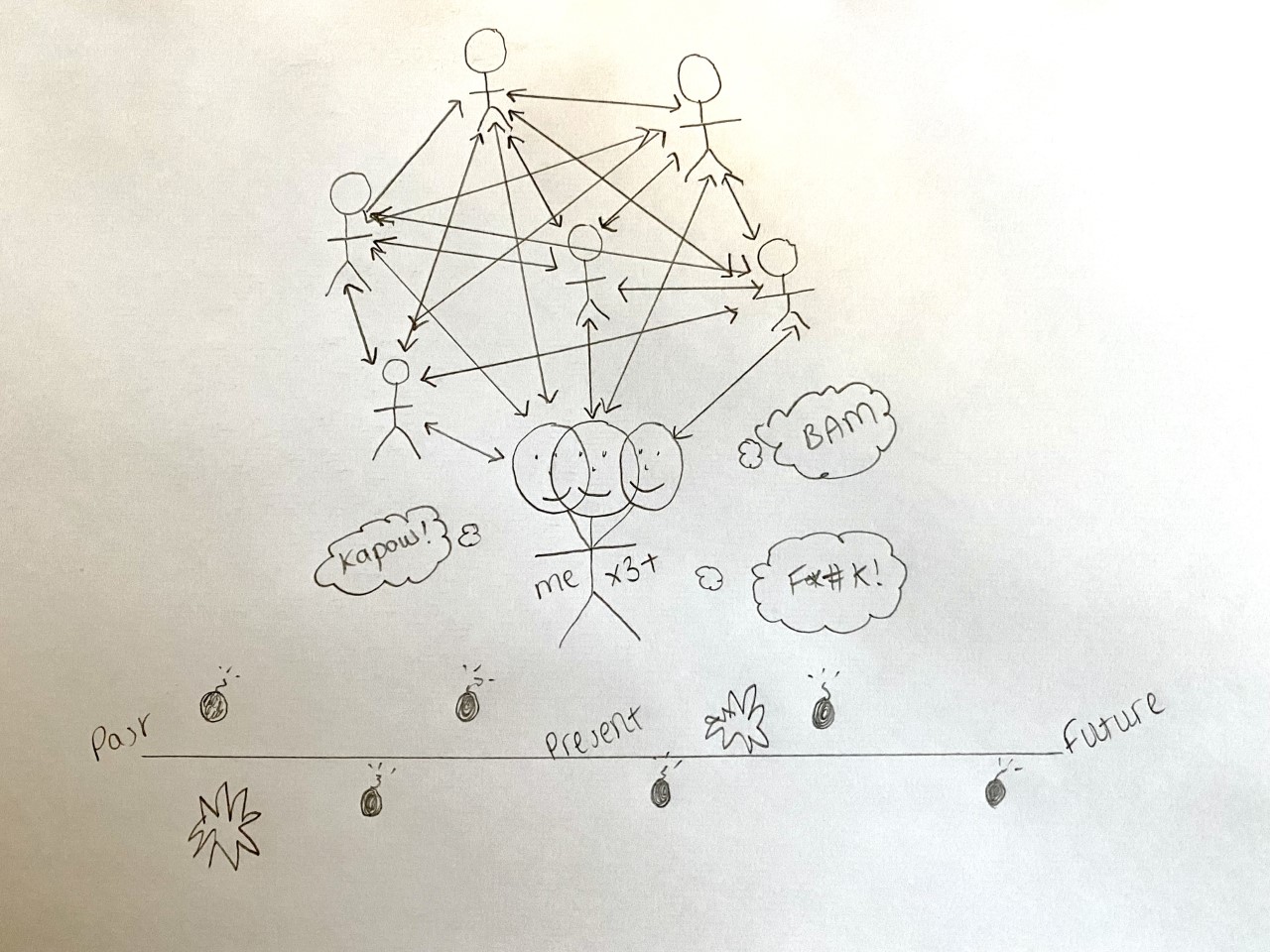Research context
This project created an exploratory space for academics identifying as being of working-class heritage (WCH) to share stories about their biographical roots, and routes into and through academia. Using storytelling methods, we created three interactive comics communicating and celebrating the rich complexities of experience associated with identifying as an academic of working-class experience.
The project aimed to create composite stories which represented to students of WCH in, or considering, postgraduate studies that people with similar lived experiences to them existed in academia. This group of students was chosen as the target audience because research illustrates that growing inequities in wealth in the UK is making it more challenging for students of WCH to access postgraduate studies (see Savage, 2015; Wakeling and Laurison, 2017 and Elliot Major and Machin, 2018). However, through the process of this project, we have come to realise that the audience is much wider than solely people in or contemplating postgraduate studies.
